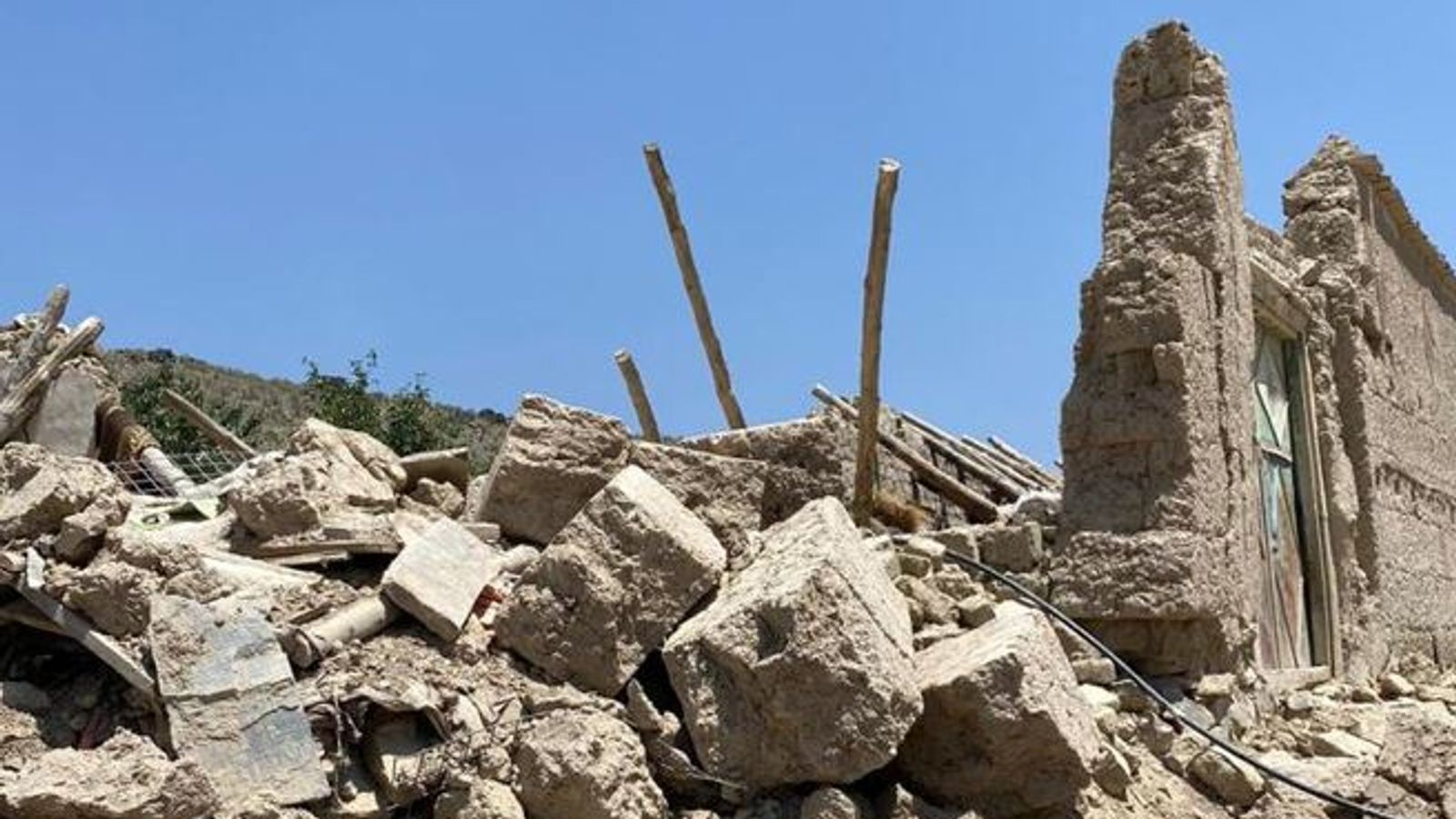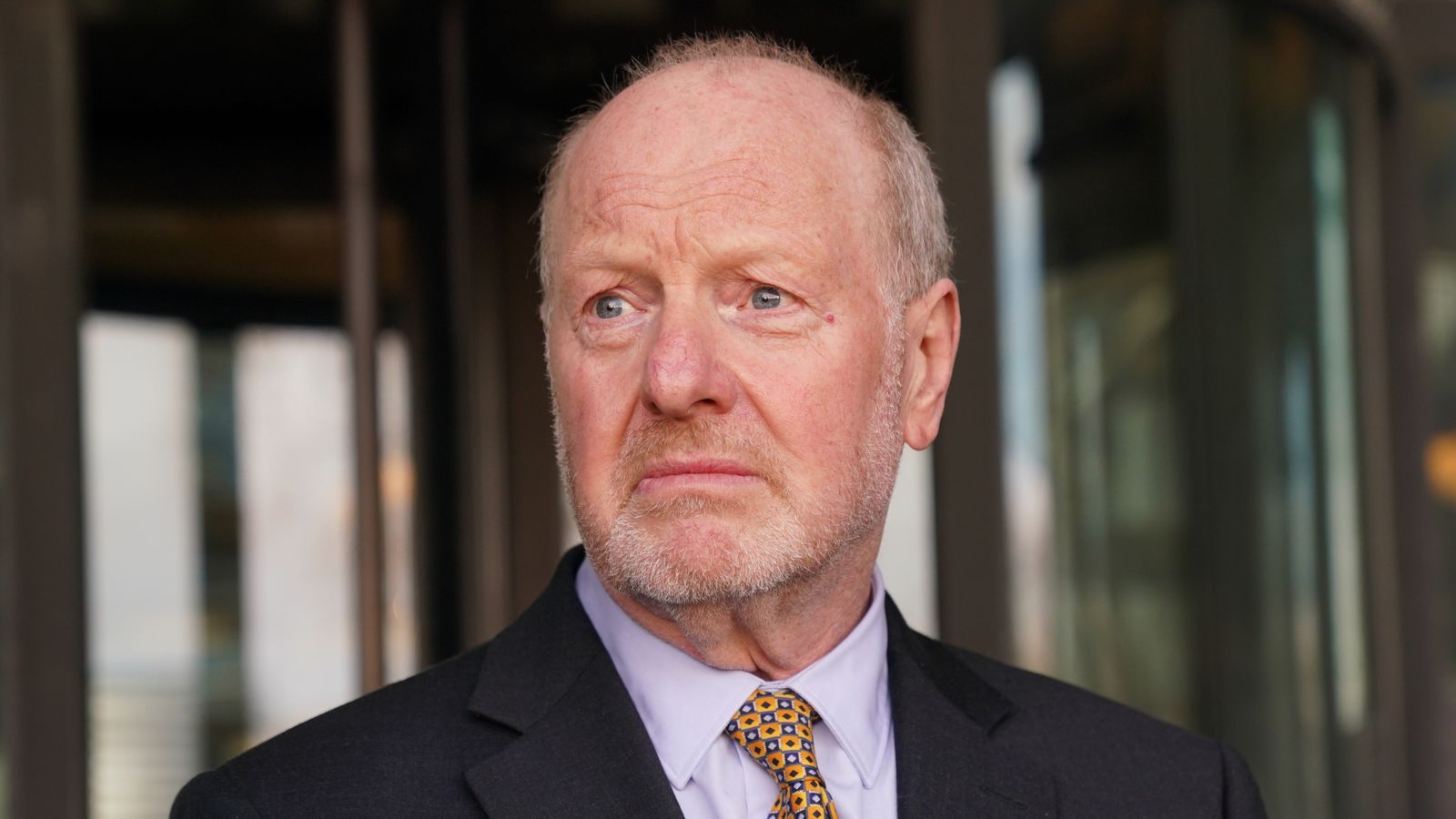Mohammad Roshan has lost 18 members of his family.
He said he believes one body is still trapped beneath the bricks and mud of where his home once stood in rural Afghanistan.
Last week a powerful 6.1 magnitude earthquake killed at least 1,000 people in eastern Afghanistan and its lasting effect are clear to see when you arrive.
Looking back at the ruins, Mohammad breaks down in front of us – he has no words to describe how it feels to lose everything.
“If we find them then we will bury them. But it’s no difference if they’re buried in the graveyard or here. That’s a graveyard and so is my home now.”
It’s not an easy journey to get to the province of Paktika, let alone the most isolated and devastated village in the Bermal district.
In Schwegi China, more than 50 people were killed, entire families wiped out, livelihoods totally destroyed – but assistance is in short supply.
Afghanistan earthquake: Will this disaster bring the Taliban back to the international table?
Afghanistan earthquake: People call for help from international community amid devastation and trickle of aid
Afghanistan earthquake: Rescuers dig by hand for survivors amid confusion over Taliban aid appeal
Mohammad takes us to his new home, a tent with the most basic facilities. On the bed lies his sister with a broken leg, she still hasn’t had a visit from a doctor and is in a lot of pain.
It’s a rarity women are allowed to speak to us but she wants people to hear what she endured.
Bibi Hawwa told us: “When the earthquake struck I didn’t know what was happening, I was completely unconscious. When I came round I was shouting for my brother and father and asking why they weren’t coming to get me out.
“I had no idea what the situation was like outside.”
Very little aid is trickling through to this village, its remoteness is the main reason it was one of the last areas to receive any help.
The communication here is poor, there are no health facilities in surrounding areas and above all else the routes to get here are incredibly tough.
Aid agencies haven’t yet found a safe landing zone for helicopters and so all survivors can do is watch as vital support flies past.
But what’s more poignant here than anything, is the smell. It’s one that will stick with you for quite a while, particularly when you know what it’s of.
Bodies remain in the rubble, impossible to reach without proper help.
All but a few homes in this village have been flattened. The earthquake has cut off water supplies here which is making basic living even tougher.
We’re approached by Habibullah who wants to show us the destructive impact this earthquake has had on his home and on his life. Villagers tell me his house was one of the nicest in the area and that he’d spent a lot of money and time building it. He’s now calling for help to rebuild it.
“We can’t live in these tents forever. The government should help us financially so we can rebuild our homes. You can see all my belongings are gone and under the rubble.
“They should rebuild our homes for us, if they can’t then at least give us the money so we can rebuild it ourselves.”
Our interview with Habibullah is disrupted by the arrival of a male doctor. Habibullah himself needs medical attention, as do many others in the village. They rush to get the help they need.
What’s worrying though, it’s only men and boys who are being treated. A young man races down the hill carrying seven-year-old Mohammad. He broke his leg in the earthquake and needs medical attention.
As he’s having his dressing changed and wounds tended to, the doctor tells us Mohammad is an orphan – he lost his whole family in a flash when the quake shook this country. His physical pain will eventually ease, but the grief of losing the rest of his family will live with this boy forever.
Read more:
Will this disaster bring the Taliban back to the international table?
People call for help amid devastation and trickle of aid
In the neighbouring village of Lawara there is more stable, continued support. International aid agencies have managed to set up bases to assist those who’ve lost everything.
Medecins Sans Frontieres was one of the first responders on the ground. Dr Taufeeq has been here for almost a week now and is seeing new patients every day.
“You can see in the surrounding areas there are no health facilities in this area. The routes are very difficult and also communication is not very good, they’re the reasons why news about this area was very late.”
He adds: “Right now there is a need for trauma care so we have set up a trauma unit here. We’re seeing more and more infected wounds as well.”
Home upon home has been completely wiped out – this is a village now just made up of tents and mounds of rubble.
Some day though the aid agencies will have to pull out – but leaving is no option for those who survived this crushing earthquake. They face many months, perhaps years literally having to rebuild their broken lives.






